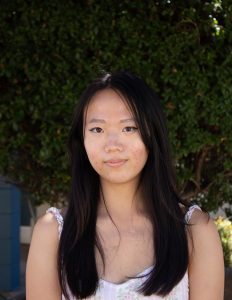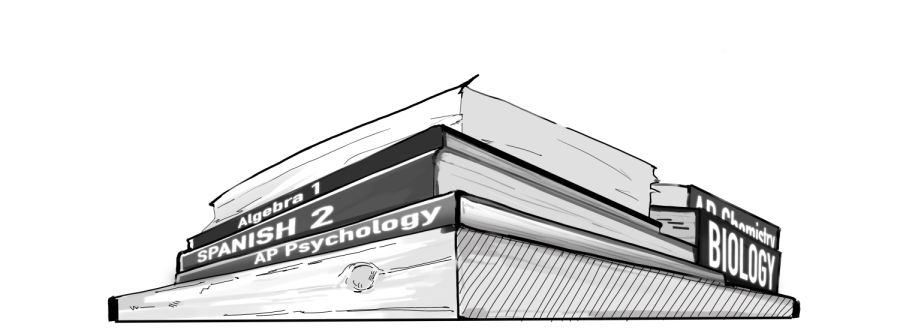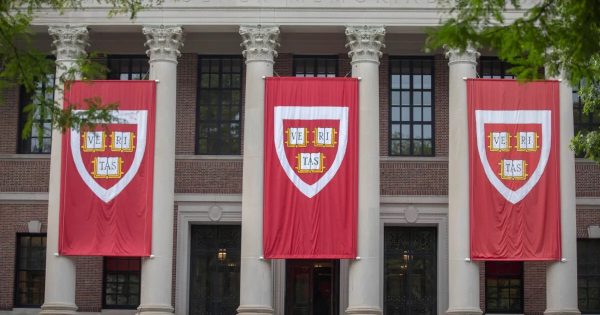The APs That Were Voted Most Influential
AP Literature – Serena You (12)
I just heard about AP Lit from people who were taking the class already, because I transferred in a week late. There were also upperclassmen from the year before. Honestly, I took it because I was in CP for a week, and then it was too easy. I like the environment of AP classes more. The amount of work is so different.
The writing aspect is really valuable to me because I feel like it’s really important to get better at writing, especially for college apps and stuff. I feel like learning how to write well and analyze literature well is pretty important. During class, we usually don’t have that much independent work time. It’s more like class discussions. We might have a quiz or something about the chapters that we read the week before, and then after that, we usually just have a class-wide discussion for the rest of the period.
Something that will stick with me is how hard the class is because it’s probably one of the hardest classes I’ve ever taken. What I learned from that class is also really valuable to me—it’s just different because it’s so literature-based. Just the experience of taking such different classes is going to stick with me.It stands out from other classes because there’s a lot of work. Like, a lot of work. There’s an insane amount of reading every night.
I really like Ms. Hallford as a teacher, because you can tell that she genuinely cares about her students. She also makes class really engaging, which is something that my other English teachers never had in the past. So that’s pretty helpful on her part.
To underclassmen, I wouldn’t really recommend this class if you value your time. I don’t think you should take this class on top of other APs because it’s a lot of work. There’s reading every night, and it doesn’t sound like a lot, but it adds up, and because there’s also so much other work in your other classes, there’s just no time. If you genuinely, really like reading, I recommend AP Lit. But that’s if you actually go out of your way to regularly read. So honestly speaking, I do like the class, but I wouldn’t recommend it.
AP Calculus BC – Sophia Zhu (11)
I like math, and I was already on the double accelerated track. So AP Calculus was naturally the next thing for me to take, especially because it was the most challenging math course available to me. I know I’m likely to use calculus in the future because I’m considering many STEM careers. And I think the process of learning how to solve problems in mathematics is pretty rewarding. AP Calc definitely caused me to study quite a bit, which is good in a way since it’s kind of improved my study habits.
The ability to persevere is something I got from this class. You can’t really understand everything immediately. And so taking a challenging class like calculus helps you just learn to keep going even if you don’t understand something at first. In class, there’s a lesson first, and then we do classwork that relates to the lesson. And if you finish your classwork, you get a stamp, which is two points on the 10 point assignment.
Something that will stick with me—it’s not just the math itself, but also the memories with the people in the class because we always have lots of fun, we make jokes about how our brains are tiny and stuff.
Calc is definitely my most challenging class this year. I think it’s also a much smaller class than most of my other classes. You get to know more of the people in the class, which I think is pretty good. I don’t know if I’ll take calculus in the future. It will depend on what I decide to major in, that’s for sure. If I major in something that’s not even related to calculus, then I probably won’t take more calculus courses.
Miss Lin is pretty helpful. I think when she explains things, it’s pretty clear. So I don’t really feel like I have to go and ask her clarifying questions because her teaching is already clear enough.
If you like math, then I’d definitely recommend AP Calc.
World History Honors – Atasi Singh
I decided to take World History Honors when I was doing a lot of clubs involving learning about prior history, like debate. History kind of intrigued me before, and I was kind of curious about how we are today from what we learned in the past.
Everything we’ve covered has been, especially what we learn in the beginning about types of governments—things that would literally impact my life in the future, like the political spectrum. It’s probably really important to understand what’s happening in the place I’m living in. I learned a lot about how every individual or how a lot of entities exist now versus back then. How we’ve changed things and how to not repeat past mistakes has really stood out to me.
No one directly teaches us world history up until you actually enter high school, when you think about it. We’ve been learning American history and social studies, but when you look at world history in a lens that’s different from what you’ve been learning all this time, it changes how you look at everything you’ve seen before.
There are a lot of group learning projects, and there are tests and quizzes, of course, as well as research projects, and so what we do varies a lot. For example, we’re learning about revolutionaries right now. So instead of filling out a worksheet and looking at what each revolutionist did, we’re making an interview where there are two hosts, and they’re interviewing three major revolutionaries, and they tell you about their experiences. It’s more fun that way.
I think pretty much everything we do in this class will stay with me. As someone who does a lot of things related to history, I’ll probably carry a lot of what I learned, especially from the first unit on politics. I think that’s going to actually help me make life decisions. And if I want to vote, then these are things I should be looking at. After Irvington, I would definitely still look into the news and relate to it, for sure.
To me, this class isn’t a difficult class and usually a class I really enjoy—where you can take a breather and relax. Whereas I feel like other classes are less fun in terms of projects and things like that.
The diversification of explaining world history to students stands out to me at Irvington. I feel like maybe some schools might only use a textbook for class, but we get perspectives from different countries and different teachers. It’s all collaborative work. There’s no bias in any way, like textbook bias or teacher bias, or source bias; it’s a combination of everything.
I would recommend this class to everyone, 10,000%. I generally just think World History is such a contemporary subject to take because you can literally apply it anywhere. Even if you don’t think like you’re going to learn anything from the Industrial Revolution or something random like that. You definitely will, because it shaped wherever you’re living in.
Drama – Anshika Agarwal
I heard about drama first in seventh grade. And my mom was like, yeah, you should take it. So I took it. I did it in eighth, and then I took it again in ninth because I’d already done it before. It’s fun, and because I’d already taken Drama 1, not taking Drama 2 and Drama 3 would just seem awkward. So I just continued with it.
We’ve already learned about having self-confidence and not being shy when expressing ourselves. Drama is all about showing who you really are because it’s about performance, even when you become another character. Recently we had to do a stage fight, which included fencing, and so that included some dialogue, movement, and fighting, which shows another aspect in different characters that you had to perform before. The drama definitely forces me out of my comfort zone sometimes.
Usually, during class, Mr. Ballin gives us an assignment and tries to work with us on it. Right now we’re doing monologues, which we had to find ourselves. Mr. Ballin’s going to be working on it and telling us how to improve it line by line. When we memorize and rehearse it, for example, he might tell you that you can say this line slower, or this line can be faster to make it seem more comedic. On our own, we work on memorizing the lines, and then when you have the lines down, you can think about how you want to interpret the scene and perform according to that.
Drama has really taught me to always be confident. And if you’re ever performing something, you should always give your best. Because if you do your worst, then people are gonna perceive you as the worst.
Most classes are handwritten, and you’ll be writing down a lot of notes and studying for them. But this class is all performance. It’s about using your body and incorporating a lot of movement. It’s very different to have to unlock that side of yourself. I think this is going to be my last year in Drama because I don’t think there will be a Drama 4 next year. But in senior year, I would like to focus on other visual arts that Irvington offers.
Mr. Ballin has always been a great teacher because I feel like he has a lot of experience in drama already. He’s done a lot of plays. When he guides us through new lines, it’s always like, oh, yeah, you can do it that way, too. I never thought of it like that before. He’s able to bring out a new way of perceiving dialogue.
I feel like Irvington’s drama department is really good, because first of all, we have a really big theater. I think Valhalla is one of the biggest in FUSD. And second, we already have a really great teacher. He conducts great plays, and I can really trust him to bring out a scene. Great.
I would definitely recommend taking drama. It’s a really fun class to take because it’s performance-based, and it’s a class where you can enjoy being with your friends.




